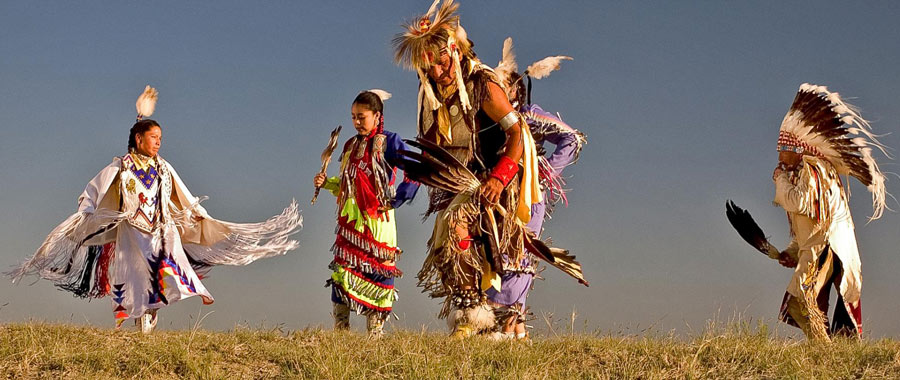In a pluralistic world characterized by an ever-multiplying tapestry of cultures, the Baha’i teachings stand as a clarion call for the acknowledgment and honoring of indigenous customs. What if, in our quest for unity, we unwittingly imposed a monoculture that inadvertently disregards the rich heritage of indigenous peoples? This query leads us to contemplate the profound need for reciprocal respect—an appreciation that is not merely superficial but deeply intrinsic to fostering harmonious relationships among diverse communities.
The Baha’i Faith emphasizes the oneness of humanity, recognizing the myriad cultures that compose the global mosaic. Yet, how can one reconcile this principle with the sensitive task of honoring those traditions that have existed long before modernity? The challenge lies in fostering a dialogue that not only respects but also elevates indigenous voices, allowing them to participate equally in the global conversation while evading the pitfalls of cultural appropriation or erasure.
To begin this discourse, it is essential to contextualize indigenous customs within the broader narrative of human development. Historically, many indigenous cultures have faced systemic marginalization, a trend that has often silenced their voices and diminished their customs. This historical backdrop complicates contemporary interactions. Engaging with indigenous customs requires acknowledging their unique histories, languages, and worldviews, which have often been underrepresented in mainstream narratives.
Reciprocal respect necessitates an earnest commitment to understanding these unique cultural paradigms. The Baha’i teachings commend the principles of equity and justice, urging followers to confront prejudices and biases that may cloud perceptions. It is imperative for individuals to educate themselves about the historical contexts surrounding indigenous communities. This knowledge fosters an unwavering foundation of empathy and recognition, essential for nurturing authentic relationships.
Moreover, the principle of consultation is paramount in the Baha’i Faith. It serves as a guiding mechanism for engaging with diverse perspectives. Inviting indigenous peoples to the table in discussions regarding policy-making, community development, and cultural preservation exemplifies this consultative spirit. The crux of effective consultation lies in listening, ensuring that indigenous voices are not only heard but also actively integrated into decision-making processes. This participatory approach substantiates the idea that every culture, including those of indigenous origins, offers unique contributions to the collective understanding of humanity.
In practice, honoring indigenous customs can manifest through various lenses: education, art, and community engagement. Educational institutions bear the responsibility of integrating indigenous histories and philosophies into curricula. By doing so, they instill respect and understanding in students, paving the way for future generations to champion the cause of cultural preservation and innovation. Similarly, artistic expressions, be they through literature, visual arts, or performances, serve as conduits through which indigenous narratives can be authentically conveyed and celebrated.
However, the notion of reciprocity extends beyond mere acknowledgment. It implicates both giving and receiving. This interdependence would necessitate that Baha’is and others engage in processes that enable the revitalization of indigenous customs. Initiatives such as community projects that incorporate traditional ecological knowledge exemplify this reciprocal relationship. By collaborating with indigenous communities, it is possible to harmonize contemporary environmental practices with time-honored wisdom, thus enriching both spheres of knowledge.
Moreover, the role of elders in indigenous cultures symbolizes a vital source of wisdom and guidance, affording communities stability and continuity. Baha’i teachings promote reverence for the elderly, highlighting the importance of intergenerational transmission of knowledge. Acknowledging the insights gleaned from indigenous elders fosters a deeper understanding of their customs and traditions, bridging generational gaps while cultivating mutual respect.
Nevertheless, the pursuit of reciprocal respect is not devoid of challenges. How do we navigate instances where indigenous customs may clash with contemporary societal norms or beliefs? The interplay between tradition and modernity can pose complex dilemmas. For example, engaging with indigenous healing practices may resonate with holistic approaches in modern medicine, but it can also force a reckoning with entrenched biases and misunderstandings. This complexity underscores the necessity of maintaining an open dialogue that is characterized by humility and a willingness to learn from one another.
Furthermore, as globalization continues to reshape cultural landscapes, the risk of commodification of indigenous customs looms large. This brings forth ethical quandaries regarding representation, authenticity, and ownership. The challenge lies in supporting indigenous peoples in reclaiming their narratives while resisting the urge to exploit their cultural expressions for commercial gain. Engaging in thoughtful discourse about these issues can bolster efforts to honor indigenous customs genuinely while guarding against superficial interpretations.
In conclusion, the Baha’i teachings advocate for an inclusive pursuit of knowledge that honors the intricacies of indigenous customs while promoting reciprocal respect. Engaging authentically requires a commitment to understanding, listening, and collaborating. While the path is fraught with challenges, it is also ripe with opportunities for enrichment and growth, both individually and collectively. We must dare to ask ourselves: Are we prepared to embark on this journey of reciprocal respect, allowing the echo of indigenous customs to resonate harmoniously within our global narrative?
